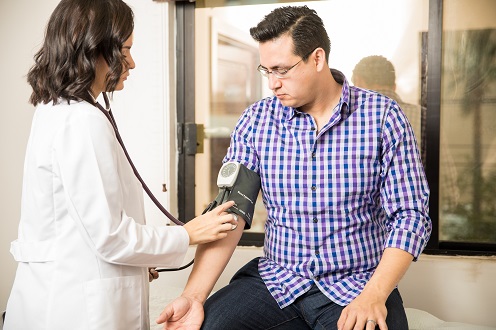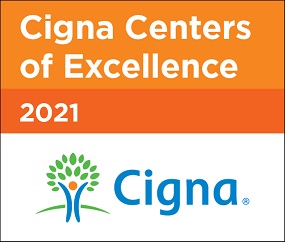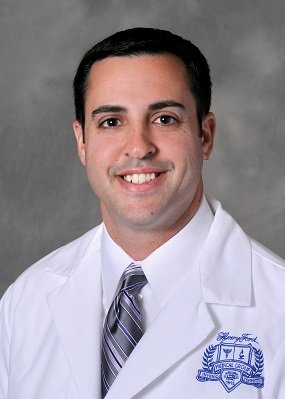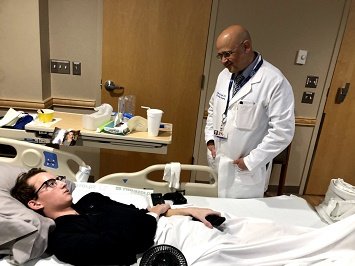
How Chronic Pain Can Lead To Addiction Issues
Learn why people who suffer from chronic pain are at an increased risk of addiction — and how to spot the warning signs.
We understand that addiction, also known as substance use disorder, is not a lack of self-control or an unwillingness to quit using a particular substance. It is a serious medical condition that involves ongoing, repeated use of alcohol, opioids, or other drugs. It affects people from all walks of life, from every background from across metro Detroit and throughout Michigan.
Addiction can cause problems at home, work, school, and in relationships. It also can lead to lasting health problems, including organ damage, disability or even death if left untreated.
Two of the most common types of addictions we treat are:
Learn more about the types of addiction we treat.
No one should face the challenges of addiction alone. Our team of addiction providers will work with you and your loved ones to develop a personalized, effective treatment plan. Your treatment plan and level of care are based on evidence gathered during the assessment phase and the latest scientific research in addiction.



The first step in treating addiction is a thorough assessment. We have to understand the root cause and where you are in the treatment process. For example, have you just realized you have a problem, or have you stopped using and are dealing with withdrawal symptoms? Do you have an underlying mental health condition that led to your substance abuse?
Once we’ve completed our assessment, we can diagnose and recommend the right type and level of care based on your unique needs. Learn more about addiction assessment.
After your assessment, our addiction team will recommend one of three levels of treatment:
Treatment plans may include detoxification (also known as detox) and medication-assisted treatment, depending on your needs. Learn more about our addiction treatment options.
Our programs are designed around the unique needs of each patient. We are experienced in treating addiction in teens and in women, including during pregnancy.
We also have specialized programs for professionals whose struggle with addiction impacts their job, such as healthcare workers, lawyers and those in transportation fields.
Learn more about our addiction treatment options.
Addiction care is a continuous process that involves help from loved ones and a variety of support systems. Patients and loved ones whose lives have been touched by addiction can access our wide range of education resources. We also recommend that you and your family members take part in 12-step programs offered by organizations in our community for additional support.
Learn more about education and support programs available.
Henry Ford Health accepts most major commercial health plans. We will check with your health plan and let you know what treatment is covered, as well as any costs for which you may be responsible, such as coinsurance, copays or deductibles. Because coverage varies, we recommend that you contact your health plan with specific questions about your benefits. Private pay options are also available.

Learn why people who suffer from chronic pain are at an increased risk of addiction — and how to spot the warning signs.

Think alcohol in moderation isn't so bad? Turns out, that's not quite true. Even less than one drink per day can increase the risk of certain cancers. Learn more.

The pandemic may be behind us, but for many, drinking too much during COVID has become an ongoing problem.

Giving up cigarettes often means adding a few extra pounds. But with the right strategies you can kick your tobacco habit without gaining weight.

Distinction based on quality of care, patient experience and cost efficiency.

Henry Ford study shows patients can recover safely with non-opioid medicines.

It’s the 1st Michigan residential addiction program recognized for outstanding care, outcomes.

Henry Ford Health System EVALI Patient Daniel Ament on the Path to Recovery DETROIT – The teen who had a double lung transplant after...
We use cookies to improve your website experience. By using this site, you agree to our Terms of Use. Read our Internet Privacy Statement to learn what information we collect and how we use it.